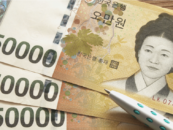Rapyd, a Fintech-as-a-Service company, has expanded its all-in-one payment capabilities in South Korea, its sixth global market.
The expansion of the Rapyd Global Payments Network first took place in Singapore in November 2019, followed by Brazil in March 2020, the United Kingdom in June 2020 and Mexico and India in July 2020.
By partnering with Korean payment service providers, KCP, PayLetter and others, Rapyd is now said to provide access to a comprehensive suite of South Korean payment options across international and local cards (Hyundai Card, Shinhan Card, Samsung Card), mobile wallets (Kakao Pay, Samsung Pay, Toss, and PAYCO), bank transfers, vouchers, and carrier billing.

Joel Yarbrough
“While competition is heating up and the market is becoming more segmented, the overall pie of Korean mobile payments keeps growing. With the launch of Rapyd’s payment capabilities in South Korea, we are able to bridge the global e-commerce players to a vibrant and exciting Korean market opportunity, and create a truly native South Korean Payment experience,”
said Joel Yarbrough, Vice President for Asia Pacific, Rapyd.
According to eMarketer, South Korea is one of the world’s top five e-commerce markets by retail e-commerce sales volume, accounting for US$113 billion sales in 2019. COVID-19 has also further contributed to the rise of digital payments in the country.
According to GlobalData, South Korea’s share of cash in transaction volumes is expected to decline to 37.2% by 2023, while non-cash payments will account for two-thirds of payment volumes. The pandemic has also given rise to social distancing, causing a decline in in-store purchases. These are being offset by rising e-commerce spending.
South Koreans are also quickly moving towards new and emerging payment technologies. According to the Rapyd Asia Pacific eCommerce and Payments Guide 2020, 36% of South Koreans chose mobile wallet payments (also known in South Korea as Simple payments) as their most preferred payment method.
Rapyd said they now offer the majority of the most popular Korean payments methods identified in the research.









